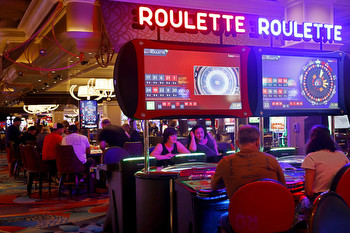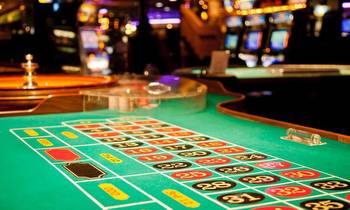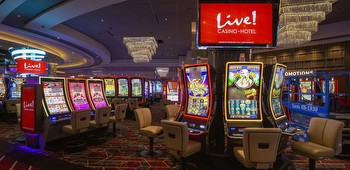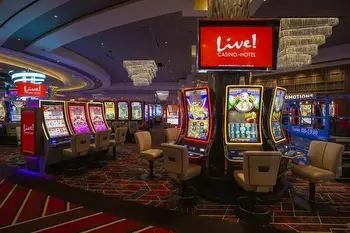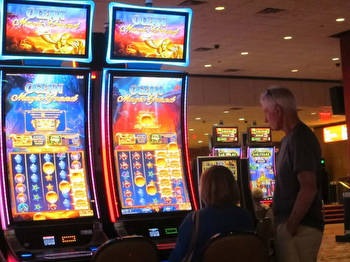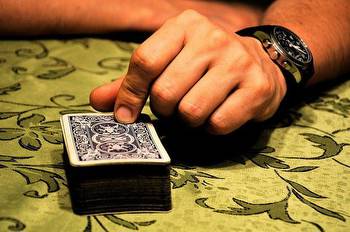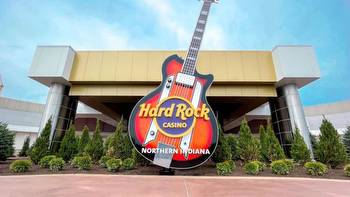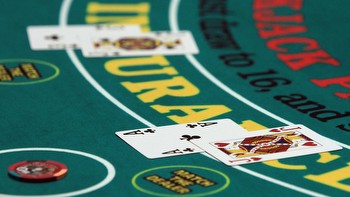The millennial future of gambling

Slot machines are out, table games are in
It’s logical to assume that due to their enthusiasm for video games, younger people who enjoy courting Lady Luck at brick-and-mortar casinos would be drawn to the increasingly sophisticated slot machines that occupy most of a gambling den’s real estate.
But according to gaming-industry insiders, it’s the decidedly low-tech table games—roulette and blackjack in particular—that these days tend to grab the hearts, minds, and wallets of millennials and Gen Zers.
It’s not that anyone foresees the games ever becoming the primary source of gambling dens’ revenue: For decades, the traditional slots/tables income breakdown has remained fairly consistent with what, in pre-digital times, were known as “one-armed bandits” accounting for between 70 and 80 percent of gross gaming earnings throughout the industry. But, say those in the know, the tables provide something that even the most intricate slot machines cannot, and which pretty much everyone needs: in-person interaction with other people.
“I do think that there’s a social aspect. I see that here at the property,” said Justin Moore who, as general manager of Rivers Casino Philadelphia, oversees the riverside adult playpen’s operations.
“I think a big part of it is that social activity,” Moore said. “If I go out gambling with my wife, most likely you won’t see us together; I’ll be playing video poker and she’ll be playing keno somewhere. But I see it more with the younger folks. They definitely gravitate towards the social aspects of gaming.”
He added he believes there is also a “coolness” factor that figures in the equation.
Mike Cray, the vice-president of gaming operations at Live! Casino-Hotel Philadelphia in the city’s stadium district, credits the internet—and its seemingly endless gambling options—with luring young gamblers through his casino’s doors.
“Internet gaming is driving younger generations to live table games,” Cray said. “When they’re playing at home, they’re getting a feel [for casino action] and they want to experience the real thing. It’s driven them out the door to get that interaction.”
Like any business, casinos need younger customers to replace those who have “aged out” (become too infirm to visit or died). But, explained Moore, that is getting tougher as time passes.
“The industry has been very vocal about its concerns about the lack of [casino] gambling from the younger generation,” Moore said. “We know the top gaming demographics are men from 40-to-50 years old for table games, and for slots, it’s always been 50-to-65-year-old females. And we’re looking at the younger generations going, ‘Okay, these guys aren’t playing like the people before them, and that’s a problem.’”
“I know that the industry is aware of younger generations not having the same aptitude for [casino] gaming,” Moore said. “So we just have to figure out what inspires a younger person to come in and play.”
One ostensible answer would be slot machines, which, at least on the surface, have more in common with video games than a blackjack or roulette table.
But Moore said that so far, that hasn’t been the solution because “skill-based games that play like a video game are [still] slot machines. And the problem with that is that video gamers know a phony video game when they see one. And that’s not gonna draw them in.”
According to veteran gaming-industry observer Roger Gros, younger gamblers prefer hybrids known as electronic table games, which play like standard table games but are digital in nature. As such, novice casino gamblers can feel a little more comfortable with them. But, he noted, there’s an even better reason to play at them rather than at old-school tables.
“In [table-played] blackjack, the rules have really deteriorated extensively,” said Gros, publisher of Global Gaming Business, the industry’s leading trade publication. “On the Strip in Vegas, you can barely find a game that pays three-to-two on blackjack anymore [a two-card hand totaling 21 points consisting of a face card worth 10 points and an 11-point ace]. Now, six-to-five is what they pay, which ups the house edge.”
“And they have other rules like you can’t surrender,” he added, referring to a player’s option of forfeiting half a wager if it is believed the dealer’s exposed ace means blackjack.
“There are just some really bad rules now. You can get the [more advantageous] rules, but you have to play at least $50 a hand to get them; all those lower limits have the terrible rules,” Gros said. “So it’s almost better for you to play the electronic table games because they’re the ones that you actually have some decent rules on.
“The problem is these young people don’t realize they never see the good rules [at low-limit blackjack tables]. These are the only rules they know, so they don’t understand that unless they’re really into playing and want to do some research on it,” Gros said.
So, does this mean traditional table games are headed for extinction?
“I think there’ll always be the real table games, and as young people get older and get more income, they’re gonna discover that real table games are where you really get the camaraderie and interactivity with other players,” Gros said.
“But there’s gonna be a lot of evolution with tables over the next decade,” he added. “I think a lot of it will involve technology, but you’ll still have that live aspect there.”
Hard Rock salutes Black history
Hard Rock Hotel Casino Atlantic City will be a big part of this year’s Black History Month observance in the seaside gambling capital. The pop-and-rock-themed gambling den is sponsoring a series of programs celebrating the African-American experience.
The African American Heritage Museum Pop-Up Exhibit will be on display Feb. 17-20 at the entrance to Hard Rock Live at Etess Arena just inside the valet parking entrance. A collaboration between the ’Rock and the African American Heritage Museum of Southern New Jersey, the display focuses on two crucial aspects of Black life in the 20th century: Jackie Robinson breaking baseball’s color barrier and the Black church’s central role in the lives of generations of African Americans.
Greetings
Welcome to CasiNotes, which we hope will become your go-to guide to what is happening at casinos in Philly and the rest of Southeastern Pennsylvania, Atlantic City, and, when merited, beyond.
Each column will do its best to keep you informed about what’s going on in entertainment, dining, special events and gambling. If you want to contact me, please feel free to do so: chuck@philadelphiaweekly.com
See you at the casinos!
Chuck Darrow has covered the fun and games at the region’s casinos for more than 35 years. He is still afraid that one day he may have to work for a living.
If you read this story and liked it, consider joining altPhilly, our membership program that offers exclusive content, instant access to the editor and awesome perks for like-minded Philadelphians. At PW, our coverage goes against the grain of the local mainstream media.








